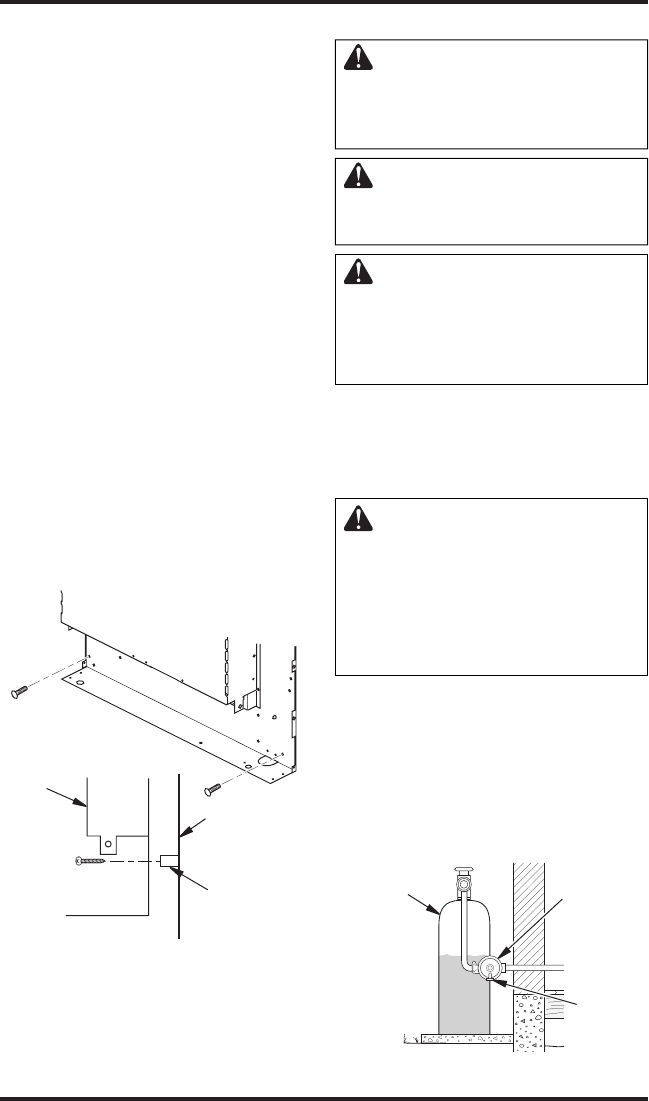
www.desatech.com
116292-01A 11
Side View
Front View
Figure 12 - Installing Bottom Mounting
Screws
Wall
Spacer
Heater
Installing Bottom Mounting Screws
1. Locate two bottom mounting holes. These
holes are near bottom on back panel of heater
(see Figure 12).
2. Mark screw locations on wall.
3. Remove heater from mounting bracket.
4. If installing bottom mounting screws into
hollow or solid wall, install wall anchors.
Follow steps 1 through 4 under Attaching To
Wall Anchor Method
, page 10.
If installing bottom mounting screw into wall
stud, drill holes at marked locations using
9/64" drill bit.
5. Replace heater onto mounting bracket.
6. Place spacers between bottom mounting holes
and wall anchor or drilled hole.
7. Hold spacer in place with one hand. With other
hand, insert mounting screw through bottom
mounting hole and spacer. Place tip of screw
in opening of wall anchor or drilled hole.
8. Tighten both screws until heater is firmly
secured to wall. Do not over tighten.
Note: Do not replace front panel at this time.
Replace front panel after making gas connec-
tions and checking for leaks.
INSTALLATION
Continued
CONNECTING TO GAS SUPPLY
WARNING: This appliance
requires a 3/8" NPT (National
Pipe Thread) inlet connection to
the pressure regulator.
WARNING: A qualified service
person must connect heater to gas
supply. Follow all local codes.
WARNING: For natural
gas, never connect heater to
private (non-utility) gas wells.
This gas is commonly known
as wellhead gas.
IMPORTANT: For natural gas, check gas line
pressure before connecting heater to gas line. Gas
line pressure must be no greater than 10.5 inches of
water. If gas line pressure is higher, heater regula-
tor damage could occur.
CAUTION: For propane/LP
gas, never connect heater di-
rectly to the propane/LP supply.
This heater requires an external
regulator (not supplied). Install
the external regulator between the
heater and propane/LP supply.
For propane/LP gas, the installer must supply an
external regulator. The external regulator will
reduce incoming gas pressure. You must reduce
incoming gas pressure to between 11 and 14 inches
of water. If you do not reduce incoming gas pres
-
sure, heater regulator damage could occur. Install
the external regulator with the vent pointing down
as shown in Figure 13. Pointing the vent down
protects it from freezing rain or sleet.
Figure 13 - External Regulator With Vent
Pointing Down
External
Regulator
Propane/LP
Supply Tank
Vent
Pointing
Down


















